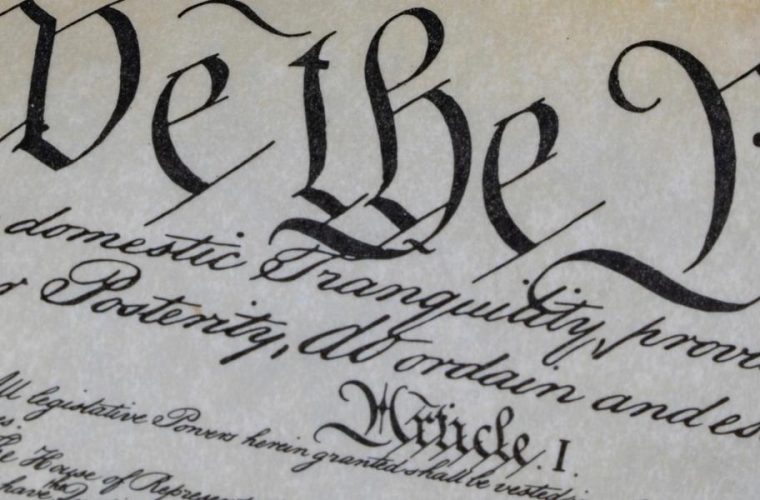
To Avarice No Sanction
“No point in the field of political economy merits more thought and analysis than where to draw the line distinguishing the functions proper to government from the role assumed by all-out government—socialism. A good society is but a dream unless this issue be reasonably resolved.”
This is how Leonard Read opened chapter 9, “To Avarice No Sanction,” in his 1972 book, To Free or Freeze: That Is the Question. While he addressed that question from multiple angles in his writing, here he takes his cue from Austin O’Malley’s statement that “all fallen nations lost liberty through avarice which engendered injustice.” Read concludes that a nation should “never admit a law to the statute books that makes an appeal to avarice.”
Government . . . means laws backed by force. To know what government should and should not do . . . requires a judgment as to which laws appeal to avarice, and a decision to avoid such laws!
Appeals to avarice . . . [include] thousands of examples affirming the tendency to satisfy desires along the lines of least resistance.
Avarice breaks out, shows itself, grows and expands in proportion to the opportunities for a “free lunch” or a handout . . . because these feeding stations provide the means by which man can satisfy his desires along the lines of least resistance. . . . Men turn to these something-for-nothing sources as readily and as naturally as they turn away from higher and toward lower prices for goods and services.
Given that the use of the word “avarice” is a couple centuries past its prime, it is worth noting its somewhat different connotation than the word “greed,” which seems to have largely crowded it out. While “greed” means an undue desire for wealth and power, “avarice” adds the idea of gaining and withholding power from others, more in line with covetousness, which involves desire for something which belongs to another.
This difference between those words comes to the fore when talking about government policies, because government has no resources it does not first take from its citizens, backed by the threat of coercion. So to be greedy for government handouts of any sort inherently involves taking what belongs to other self-owning citizens—that is, it involves avarice:
There are a few who will not stoop to the line of least resistance—persons whose moral guidelines will not let them live by bread alone. In the final analysis, a good society rests on a proliferation of this breed of men. . . . [However,] the percentage of the population accustomed to the feeding stations is so great and their voting power so attractive to politicians who accommodate this weakness that the combination seems unbeatable. Nevertheless, it is worth a try.
Men stand upright in the absence of things to stoop for. . . . Avarice is . . . a dormant trait in the absence of something to be avaricious about.
Feeding stations, contrived by laws that appeal to avarice, are composed exclusively of the fruits of [other] people’s labor. . . . When these abound, as now, men contend with each other for our property. They take.
What would happen if government-enabled avarice were to be eliminated? The greatest mechanism of reinforcing such avarice, with almost uncountable tentacles of influence, would be eliminated:
Remove these stations. Immediately men will compete with each other for our favor. They trade! Why? Because this is the remaining line of least resistance.
From stooping to upright men! From contenders to competitors! From takers to traders! From plunderers to benefactors! No more goodness or perfection in man than before, but only the removal from his presence of the temptations to avarice!
From there, Read asks how we should identify if a law appealed to avarice, so we could shun it and its adverse effects appropriately:
How are we to judge whether or not a law has an appeal to avarice, so that we may keep it off the statute books? I believe there is a simple rule: Never give approval to a law that “helps” anyone!
It is definitely not the function of government to take positive action in aiding or sustaining or lending assistance to any person or group or segment of society. Such “help” can only be given to one person or group at the expense of others.
The only principled role of society’s agency is negative; government should restrain anyone from doing injury to others. The law’s job is to codify the taboos or the thou-shalt-nots and enforce them; that is, it should invoke a common justice and keep the peace.
Any time and in every instance in which government departs from this negative or purely defensive role, avarice is released in the citizenry. Government can do all of us a service by warding off intruders; but when government pretends to “help” us, government itself thereby becomes the colossal intruder.
But how should one then respond to assertions that such an approach would be heartless? First, Read would assert that history has shown that Americans have great reserves of generosity toward their fellows. Secondly, he would point out that government help is heartless toward those whose resources are taken involuntarily for others. And third, but at least as important, he would point out that such help is not really help for those whose avarice is kindled and whose development is thereby undermined.
To most people this way of drawing the line seems cold, heartless, and without pity. But pity, unless spiced with common sense, is what’s heartless. Providing people with governmental feeding stations not only kindles the vice of avarice but it renders them helpless. The process results in an atrophy of the faculties from which recovery is next to impossible.
Helping people to become helpless is no act of kindness.



